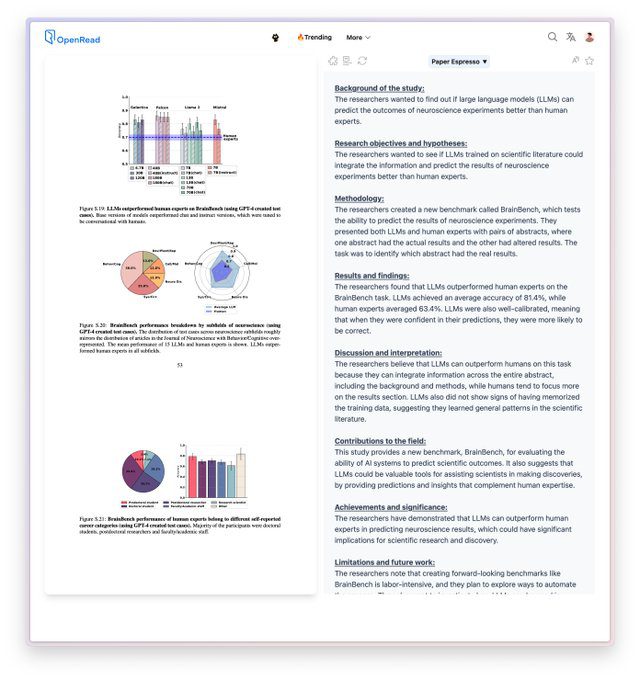Introduction to BrainGPT
A team of neuroscientists has developed BrainGPT, a groundbreaking AI model that surpasses human experts in predicting neuroscience results. BrainGPT leverages Llama, an open-source large language model (LLM), fine-tuned on extensive neuroscience literature. This innovation marks a significant advancement in the intersection of artificial intelligence and neuroscience.
How BrainGPT Outperforms Human Experts
BrainGPT’s superior performance in predicting neuroscience outcomes is attributed to its foundation on Llama, an open-source LLM developed by Meta. Llama’s architecture allows for extensive customization and fine-tuning, making it an ideal candidate for specialized applications like BrainGPT. By training on a vast corpus of neuroscience literature, BrainGPT has acquired a deep understanding of the field, enabling it to make accurate predictions that often surpass those of human experts.
Applications and Potential of BrainGPT
The applications of BrainGPT are vast and varied. In research, it can assist scientists in formulating hypotheses and designing experiments by predicting potential outcomes. In clinical settings, BrainGPT could aid in diagnosing neurological conditions and tailoring personalized treatment plans. The model’s ability to process and analyze large volumes of data quickly and accurately makes it an invaluable tool in advancing our understanding of the brain.
Comparison with Other AI Models
BrainGPT’s development is part of a broader trend in AI and machine learning, where large language models (LLMs) like ChatGPT, Bard, and LaMDA are being fine-tuned for specific applications. For instance, OpenAI’s ChatGPT has been used in various sectors, including healthcare, where it has shown potential in diagnosing medical conditions. However, BrainGPT’s specialization in neuroscience sets it apart, highlighting the importance of domain-specific training in achieving superior performance.
Challenges and Ethical Considerations
Despite its promising capabilities, the use of AI models like BrainGPT in sensitive fields such as neuroscience raises several ethical considerations. Issues related to data privacy, the potential for bias in AI predictions, and the need for transparency in AI decision-making processes are critical factors that need to be addressed. Ensuring that BrainGPT is used responsibly and ethically will be crucial in gaining the trust of both the scientific community and the general public.
Future Directions and Research
The development of BrainGPT opens up numerous avenues for future research. Enhancing the model’s capabilities by incorporating more diverse datasets and improving its interpretability are potential areas of focus. Additionally, exploring the integration of BrainGPT with other emerging technologies, such as brain-computer interfaces (BCIs), could lead to groundbreaking advancements in neuroscience and neurotechnology.
Register Your Interest
For those interested in utilizing BrainGPT, registration is open at braingpt.org. By registering, users can gain access to this cutting-edge AI model and explore its potential applications in their respective fields.
Related Articles
- TrialGPT: Revolutionizing Clinical Trials with AI
- ChatGPT Outperforms Human Doctors in Diagnosing Medical Conditions
- Exploring the Inner Workings of Large Language Models (LLMs)
- 10 Secret AI Tools to Save You Hundreds of Hours Weekly
- MysticLabs AI
Looking for Travel Inspiration?
Explore Textify’s AI membership
Need a Chart? Explore the world’s largest Charts database
